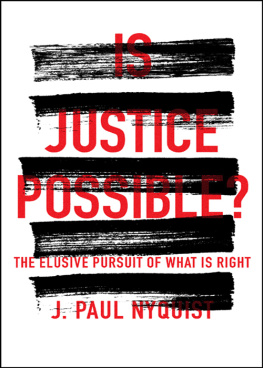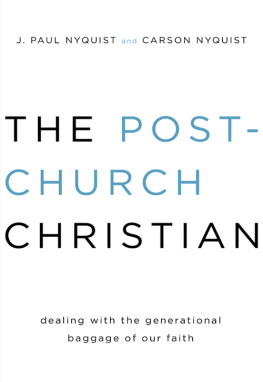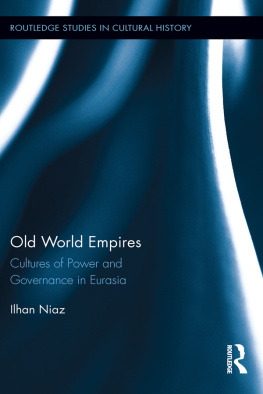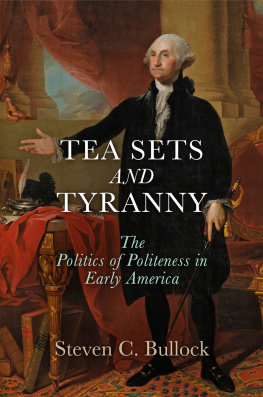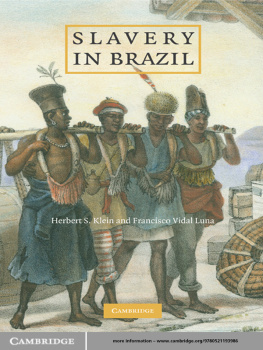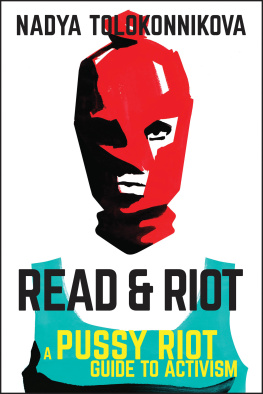Nyquist - Arbitrary rule: slavery, tyranny, and the power of life and death
Here you can read online Nyquist - Arbitrary rule: slavery, tyranny, and the power of life and death full text of the book (entire story) in english for free. Download pdf and epub, get meaning, cover and reviews about this ebook. City: Chicago, year: 2015;2013, publisher: University of Chicago Press, genre: Politics. Description of the work, (preface) as well as reviews are available. Best literature library LitArk.com created for fans of good reading and offers a wide selection of genres:
Romance novel
Science fiction
Adventure
Detective
Science
History
Home and family
Prose
Art
Politics
Computer
Non-fiction
Religion
Business
Children
Humor
Choose a favorite category and find really read worthwhile books. Enjoy immersion in the world of imagination, feel the emotions of the characters or learn something new for yourself, make an fascinating discovery.

Arbitrary rule: slavery, tyranny, and the power of life and death: summary, description and annotation
We offer to read an annotation, description, summary or preface (depends on what the author of the book "Arbitrary rule: slavery, tyranny, and the power of life and death" wrote himself). If you haven't found the necessary information about the book — write in the comments, we will try to find it.
Nyquist: author's other books
Who wrote Arbitrary rule: slavery, tyranny, and the power of life and death? Find out the surname, the name of the author of the book and a list of all author's works by series.
Arbitrary rule: slavery, tyranny, and the power of life and death — read online for free the complete book (whole text) full work
Below is the text of the book, divided by pages. System saving the place of the last page read, allows you to conveniently read the book "Arbitrary rule: slavery, tyranny, and the power of life and death" online for free, without having to search again every time where you left off. Put a bookmark, and you can go to the page where you finished reading at any time.
Font size:
Interval:
Bookmark:
ARBITRARY RULE
Slavery, Tyranny, and the Power of Life and Death
MARY NYQUIST
THE UNIVERSITY OF CHICAGO PRESS
CHICAGO AND LONDON
MARY NYQUIST is professor of English and comparative literature at the University of Toronto.
The University of Chicago Press, Chicago 60637
The University of Chicago Press, Ltd., London
2013 by The University of Chicago
All rights reserved. Published 2013.
Printed in the United States of America
22 21 20 19 18 17 16 15 14 13 1 2 3 4 5
ISBN-13: 978-0-226-01553-8 (cloth)
ISBN-13: 978-0-226-01567-5 (e-book)
DOI: 10.7208/chicago/9780226015675.001.0001
Library of Congress Cataloging-in-Publication Data
Nyquist, Mary.
Arbitrary rule : slavery, tyranny, and the power of life and death / Mary Nyquist.
pages. cm.
Includes bibliographical references and index.
ISBN 978-0-226-01553-8 (cloth : alk. paper)ISBN 978-0-226-01567-5 (e-book) 1. Despotism. 2. SlaveryHistory. 3. Slavery in literature. 4. Hobbes, Thomas, 15881679. 5. Locke, John, 16321704. I. Title.
JC381.N97 2013
306.3'6209dc23
2012043149
The University of Chicago Press gratefully acknowledges the generous support of Victoria College, University of Toronto, toward the publication of this book.
 This paper meets the requirements of ANSI/NISO Z39.48-1992 (Permanence of Paper).
This paper meets the requirements of ANSI/NISO Z39.48-1992 (Permanence of Paper).
TO THE MEMORY OF MARIAN NORRGARD NYQUIST,
MY MOTHER,
AND
TO THE STUDENTS AT THE UNIVERSITY OF TORONTO,
FROM WHOM I CONTINUE TO LEARN
CONTENTS
ILLUSTRATIONS
Figures
Table
CITATIONS
REFERENCES. Bibliographical information appears when a source is first referenced in an endnote, after which only the last name of the author(s) and an abridged title will be provided. For primary sources that I cite or refer to frequently, locators or page numbers appear parenthetically in the body of the text; relevant abbreviations or codes can be found in the first endnote reference to the edition being used. Owing to this studys length, a bibliography has not been included. Readers can use the to locate a given author or source, the first reference to which will lead to bibliographical data.
CLASSICAL SOURCES AND TRANSLATIONS. Although I have used standard translations into English, where it has seemed important to cite the original language, I have done so sparingly in parentheses. When employing Greek and Latin terms in the , I have followed modern scholarly conventions for transliteration or reproduction (e.g., despots or ius). But when these terms appear with reference to early modern texts, I use later adaptations (e.g., despot or jus).
Sources originally in Latin are cited from modern scholarly editions. Titles of sources originally in languages other than English first appear in the form in which they were published (e.g., Montaignes Des cannibales). Thereafter, they are given as they appear in the edition I am using (e.g., Of the caniballes, but Iephthes for Buchanans Latin drama). In the case of primary sources published in (or translated into) early modern English, I have retained original punctuation, spelling, italicization, and capitalization, with the exception of i and v, which I have silently changed to u and j, respectively, as well as other typographical practices that are now commonly modernized (e.g., &). Italicized words or phrases within citations from early modern texts appear in the original unless explicitly said to be mine.
INTRODUCTION
Arbitrary Rule began many years ago when I started wondering why figurative, political slavery is written about so readily, with such intensity, rhetorical ingenuity, and, occasionally, theoretical rigor, in the English revolution of the mid-seventeenth century and again in the American and French revolutions. Why do radical Western European pamphleteers and theorists represent their opposition to the existing monarchical regime (or, in the case of Englands thirteen mainland American colonies, their hostility to England) as a form of slavery? What, if anything, does this political slavery have to do with Euro-colonial enslavement and transportation of Africans across the Atlantic to the New World? By the late eighteenth century, antislavery discourse often speaks the language of opposition to political slavery. Does such double encoding occur in earlier periods? If not, when and by what means does political slavery become interconnected with objections to slavery as an institution? These questions led to others about Greek and Roman use of slavery as a figure for political oppression, and to asking how early modern humanists appropriated political slavery in addition to the barbarism with which it was often associated. Scholarship on classical and early modern political philosophy did not address the queries I had about political slaverys imbrications with personal slavery or its discursive conventions. Arbitrary Rule arose to meet this need, however imperfectly.
In exploring these issues, I have adopted a term Kurt A. Raaflaub introduces with reference to Athenian democracy, antityrannicism.
Clarity about interrelations between political and chattel slavery is difficult to come by partly because in a postabolition era, antityrannicisms vituperation against tyranny for threatening to reduce free citizens to political slaves is often mistaken for a denunciation of slavery itself. Revalorization of the ancient Greco-Roman polarity between freedom and slavery is frequently the result, all the more insidious for being inexplicit or perhaps subconscious. A not atypical desire to associate, if not equate, repudiation of political slavery with an enlightened rejection of slavery appears in Geoffrey Robertsons Introduction to his edition of The Levellers, where he traces the Universal Declaration of Human Rights to its humble origins in the Putney Debates that took place in 1647, during Englands Civil Wars. Anyone who has been moved by the outpouring of creative, revolutionary ideas by marginalized women and men whose voices are almost never heard will share Robertsons desire to impart the experience. Far too often, the American, French, and Haitian revolutions are discussed without acknowledging the influence of the earlier revolution of the mid-seventeenth century. Besides raising awareness of how deeply engaging much of this literature still is, though, Robertson has a narrower, nationalist agenda, revealed when he claims that central democratic principles are derived not from the slave-owning societies of Athens and Rome but rather from buff-coated and blood-stained English soldiers and tradesmen.Brief, Robertsons gripping study of the trial of Charles I and its aftermathderive their ideals and their fiery commitment to radical political change from their own Protestant, English communities and the Christian Bible.
Colorfully, if obliquely, contrasting the slave-owning societies of classical antiquity with slave-free seventeenth-century England, Robertson associates a native English aversion to slavery with an equally indigenous robust love of democratic freedom, expressed in the tracts published in The Levellers as a rejection of the political slavery attendant on tyranny. The larger historical context in which buff-coated English commoners assert their beliefs is thereby misrepresented. True, at the time of the revolution, England was not directly dependent on slave labor as were Athens and Rome. Despite an unsuccessful bid to reintroduce it in 1547, slavery was not legally permissible in early modern England. Alongside other Western European nations, however, England undertook numerous overseas ventures, steadily expanded its capitalist instruments and colonial holdings, and developed transatlantic plantation societies that were, unquestionably, slave societies. Situated in this ever-expanding transnational context, early modernisms interest in political freedom and slaveryinterconnected with the humanist revival of classical Greco-Roman literaturesignificantly contributes to the lengthy, often only indirectly acknowledged process, beginning in the fifteenth and extending into the nineteenth century, by means of which expropriation of Amerindigenous lands and transatlantic slavery became institutionalized.
Next pageFont size:
Interval:
Bookmark:
Similar books «Arbitrary rule: slavery, tyranny, and the power of life and death»
Look at similar books to Arbitrary rule: slavery, tyranny, and the power of life and death. We have selected literature similar in name and meaning in the hope of providing readers with more options to find new, interesting, not yet read works.
Discussion, reviews of the book Arbitrary rule: slavery, tyranny, and the power of life and death and just readers' own opinions. Leave your comments, write what you think about the work, its meaning or the main characters. Specify what exactly you liked and what you didn't like, and why you think so.

